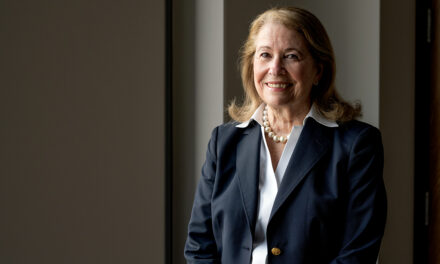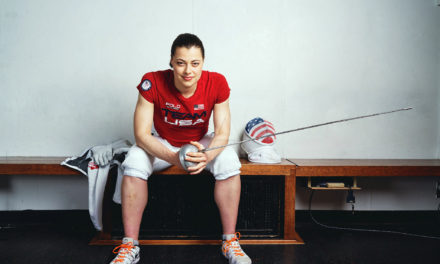Women who were once more passionate than political are finding themselves in the throes of hotly contested battles, such as gender equality, climate change, and sexual assault. How did they become community leaders, and what can you do where you live?
Who am I to do this? That’s what Patty Cronheim remembers thinking the first time she walked through her neighborhood with a clipboard and a bunch of flyers. It was the summer of 2014, and the jazz musician and recording artist had just received a letter from PennEast, a company she’d never heard of, informing her that a massive gas pipeline was being built in the preserved land behind her home in Hopewell, N.J. “I couldn’t understand how a fossil-fuel pipeline could go through land that we had paid to preserve,” she says.
Cronheim read up on property rights. She reached out to environmental experts. She connected with people in New Jersey and Pennsylvania who had dealt with pipelines before and studied up on the controversial $1.2 billion project that would pump natural gas across a projected 118-mile route from Wilkes-Barre, Pa., to Hopewell. “Then I heard that PennEast was doing a public meeting in Hopewell that no one in my community knew about.”
So, she compiled everything she had learned about the pipeline project into information sheets that she could give to her neighbors. “I was just an angry woman with a clipboard,” Cronheim says. “But I believed that everybody should care about what’s happening in their backyard.” And as she went from door to door, she thought, Who would I be if I didn’t do this?
A quick look at the news, and you can see that Cronheim isn’t alone in her sudden need to take up a cause. The if-not-me-who mantra of the accidental activist has been repeated by scores of women in the region who are becoming more civically engaged. Where previously they may have been inclined to sit on the sidelines, feeling helpless in the face of restrictive new laws impacting their lives and the lives of their loved ones, they now feel compelled to raise their voices and act. “There’s almost this driving need to figure out a way to have a voice at a moment when there’s real and growing concern that a lot of the issues that many women care about are going to come under attack or be ignored,” says Deborah Walsh, director of the Center for American Women and Politics at Rutgers’s Eagleton Institute of Politics.
While it’s become so easy for most of us to live in a social media bubble of likes and dislikes, avoiding action because it often requires moving out of our comfort zones, real change doesn’t happen by changing the colors of our profile pictures. Pushing back on unwanted projects, hate speech, and sexual assault takes getting petitions signed, organizing meetings, raising money, and speaking out in public to raise awareness. “I think what woman are trying to do now is rather than retreating they’re stepping up; they’re becoming more civically engaged, more mobilized; they’re finding different ways in which they can have an impact,” says Walsh.
“The challenge is making sure women remain engaged,” she says. “This is a marathon, not a sprint, and things aren’t going to change in just one election cycle. The kind of change that they want to see comes from better representation of women in office.”
And for most women, staying engaged means picking issues close to their hearts and their own backyards. “It’s the responsibility of the people to protect their communities,” says Cronheim. She took this argument along with all the facts she could muster to the residents of Hopewell and explained that they didn’t have to accept this project. “We ended up having a huge turnout when PennEast came to town,” she says. “That’s when they learned that the people of Hopewell were overwhelmingly against the pipeline.”
Despite some setbacks, PennEast continues to push the project forward, while Cronheim and many others along the pipeline’s route remain resolute in their efforts to push back. She’s now an outreach coordinator at ReThink Energy NJ, a group that promotes renewable energy and fights pipeline projects statewide. “We look at how New Jersey can make a swift transition from fossil fuels to clean energy like solar and wind and increase our energy efficiency,” she says. With all the money pushing pipelines coming up against rising public support for alternative energy, the battle has just begun.
“I was just an angry woman with a clipboard, but I believed that everybody should care about what’s happening in their backyard.” —Patty Cronheim
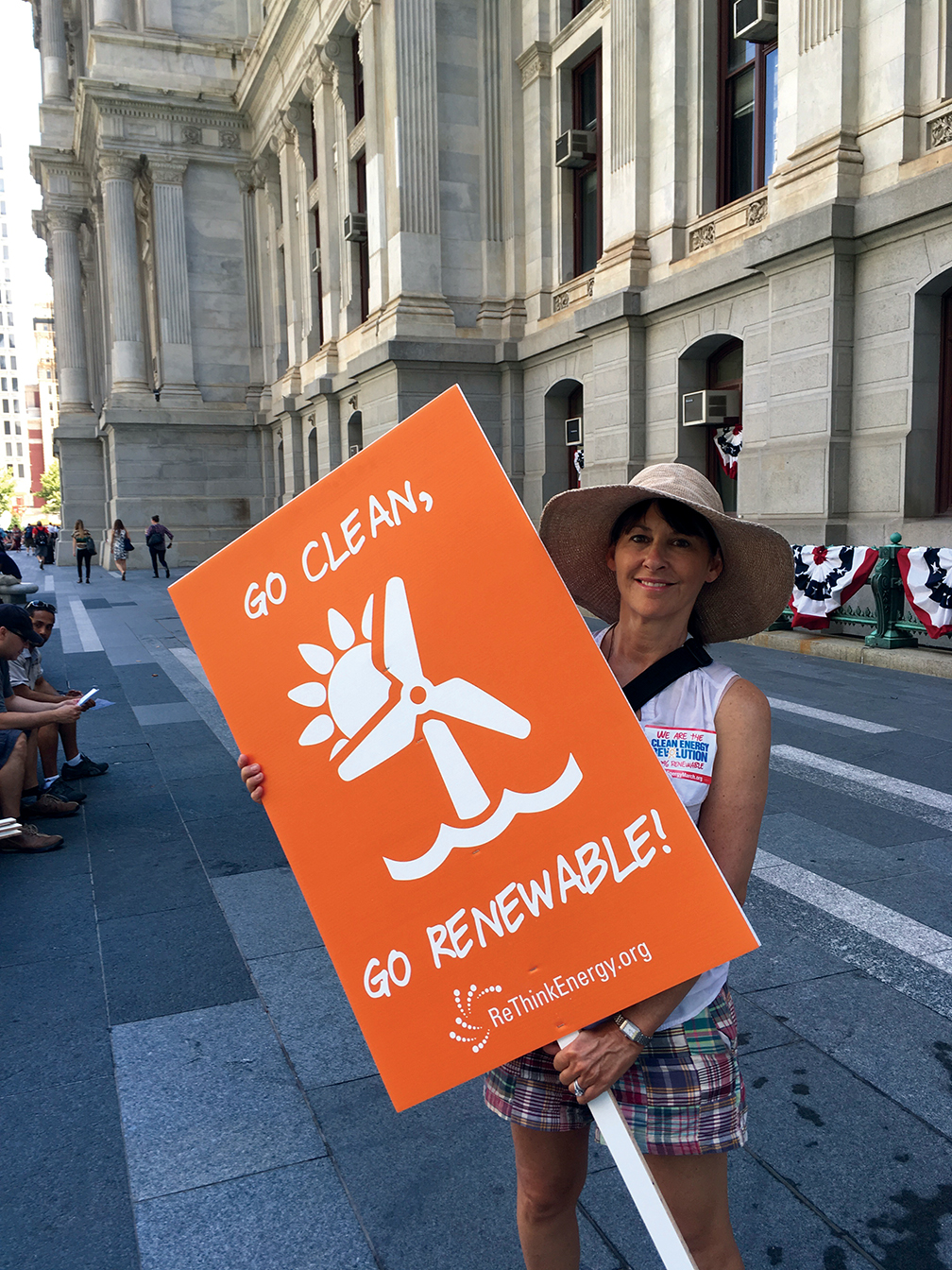
Jazz musician Patty Cronheim found a passion for environmental issues after a pipeline project was plotted through her area.
Get Active
Interested in getting involved? These organizations have excellent resources to help you get engaged with the important issues of the day.
UN Women – The UN organization dedicated to gender equality and the empowerment of women.
Ready to Run – This national network of non-partisan campaign training programs is committed to electing more women to public office.
National Organization for Women – Promotes feminist ideals that can lead to societal change, eliminate discrimination, and achieve and protect the equal rights of all women and girls in all aspects of social, political, and economic life
ReThink Energy NJ – Advocates for a swift transition to home-grown, efficient and renewable energy, and reduced use of dirty fossil fuels and pipelines that threaten land, water, health, and communities.
Rise Up Doylestown – Local nonpartisan group advancing social, racial, reproductive and environmental justice.
Roar for Good – Philadelphia-based maker of next-generation of safety products that help empower women to live their lives boldly and without fear.
On the Rise
“I’m not typically the person who would grab a megaphone,” says Liz Dooley, a community organizer with Rise Up Doylestown. “I’m more of a behind-the-scenes-with-a-clipboard kind of person, but I ended up with the megaphone at the front of the Women’s March in Doylestown.” It was January 21, 6 days after she and six fellow organizers, came up with the idea for the local march. Dooley had never done anything like this before. “I had this moment like, Am I the right person?” she says. “I have a new-ish baby, and life is already crazy, but then I thought, If not me, who?”
As she stood in front of the estimated 2,000 people who came out for the Doylestown march, the 36-year-old had nothing planned to say. “They started chanting, ‘The whole world is watching! The whole world is watching!’ It was like those nightmares where you forget to wear your pants on your wedding day,” says Dooley. As she spoke into the megaphone, she looked out into the crowd and recognized a teacher from her son’s school and a woman from the toy shop down the street and several young people from the restaurants in town. “Here are all these people from all these places, from all these different walks of life, and they decided today, instead of doing anything else, they were going to come into town and march with their families,” she says. “Sometimes we feel like no one shares our point of view, or we’re so polarized that we could never come together on anything. Yet, we’re much more similar than we realize, and the more that we come together, the more we can make positive change happen.”
Born out of that march, Rise Up Doylestown has grown into a community-focused group with regular events and meetings to get people active and engaged. “What we do is more than signing petitions and calling members of Congress,” says Dooley. “We want to act on things we can do here that we just wouldn’t be able to accomplish at the federal level.” An example of this, she says, is how Rise Up’s environmental group is looking for ways to help curtail pesticide use in local housing developments and at area schools.
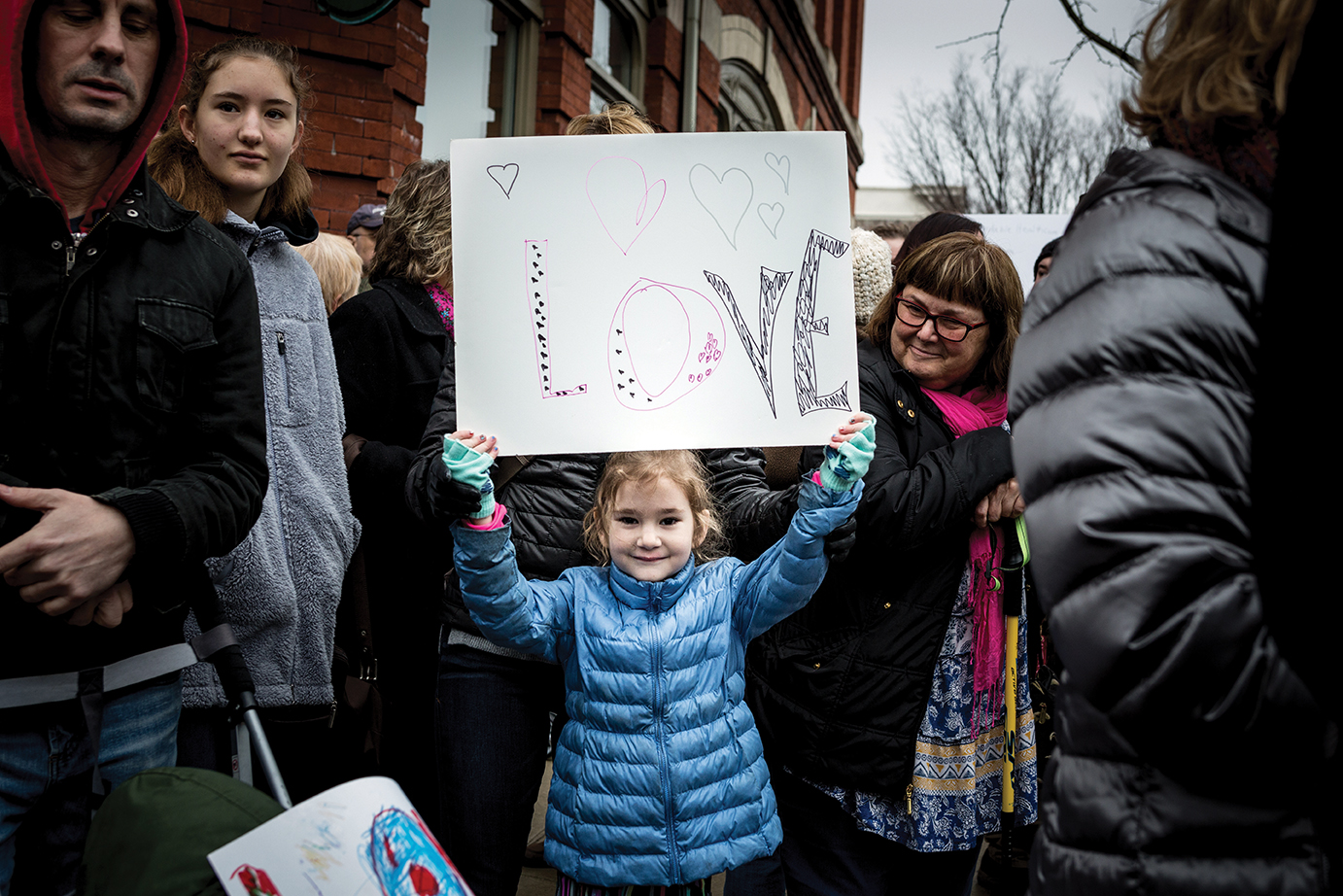
Then there was the candlelight vigil that Rise Up and a local chapter of Showing Up for Racial Justice organized after a hate group distributed KKK literature throughout the town. “Right away, we organized a response,” Dooley says. “We got together with kids from our high schools and made heart signs that say, ‘Love not hate makes Doylestown great.’” The community put the signs up in local shop windows as a reminder that hate speech of any kind has no place in the town. And the group held a candlelight vigil later that week to denounce the cemetery vandalisms and other hate crimes taking place in nearby communities and across the country.
“You always hope that a march is the first step and that something great will come out of it—something more sustainable and lasting and impactful. I hadn’t really given much thought to how that would impact my life. I feel like the work is rewarding. I don’t get paid for it, obviously. I’m proud to be doing it, and I’m proud for my kids to be seeing me doing it. And that’s enough for me.”
“Sometimes we feel like no one shares our point of view or we’re so polarized that we could never come together on anything. Yet, we’re much more similar than we realize, and the more that we come together, the more we can make positive change happen.”
—Liz Dooley

Yasmine Mustafa started Roar for Good to combat sexual assault.
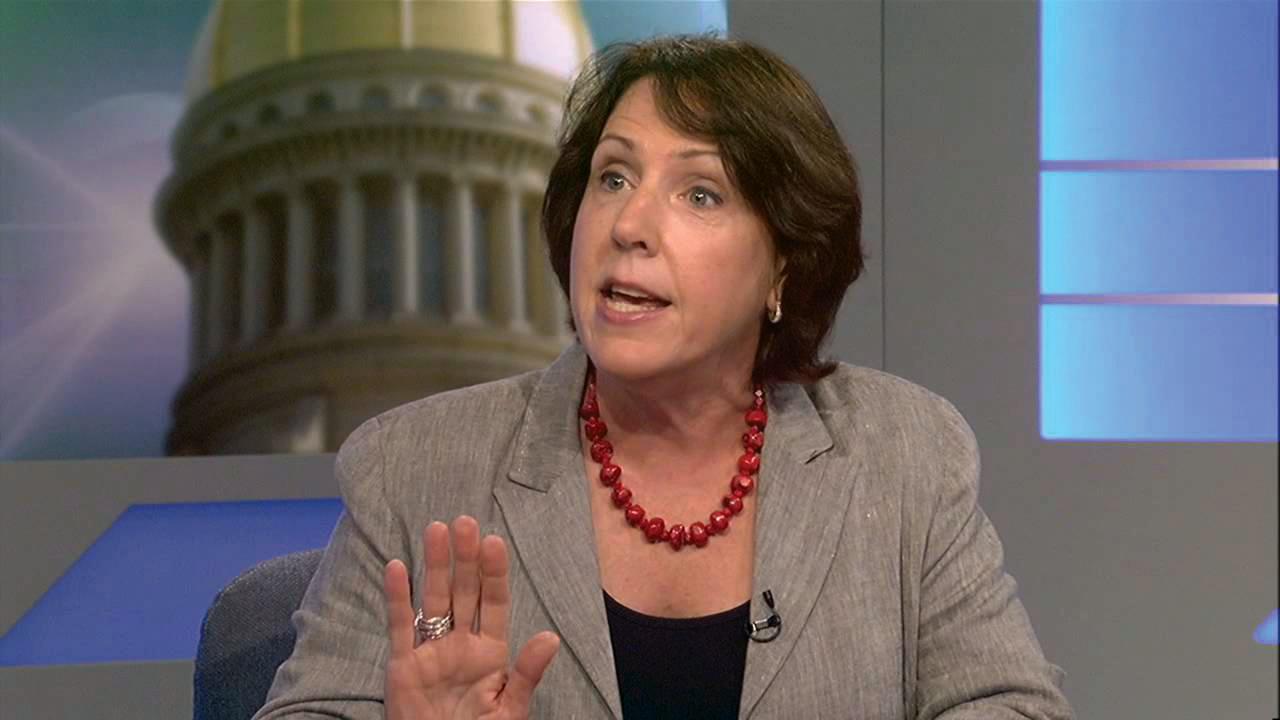
The Need For Women in Politics
The rise of women interested in civic engagement has given a huge boost to a local nonpartisan campaign-training program called Ready to Run. “We had women registering in ways we’ve never seen before,” says Deborah Walsh, who oversees the program. “Normally, we get about 150 people to attend our weekend workshop on the basics of waging a political campaign. Last week, we had 250.” The workshop focuses on understanding how the political system works in New Jersey and getting to know the points of entry and points of access into the system. “We also do sessions on advocacy, the best ways to present your argument, and how to put together that one- or two-minute elevator speech about the issue that you care about.” Walsh is quick to add that they don’t yet know how many of the women who attend their programs will actually run for office, but the uptick in interest is a pretty good indicator of more women entering the political system. “The issue of women’s underrepresentation in politics has been an ongoing one,” says Walsh. “Today, at no level of office do women hold more than 25 percent of the seats. Women are still a minority among elected officials, yet they are over half the population.”
Boldly Go
Like most entrepreneurs, Yasmine Mustafa dreams of creating a transformative product. At 34, she has already launched the Philadelphia chapter of Girl Develop It, a non-profit focused on teaching women web-development skills, and sold her first tech startup. After spending 6 months traveling by herself through South America, she came home ready for a new challenge. “In every hostel and on every bus, I’d hear from women—both locals and travelers—who had been victims of assault,” says Mustafa. After hearing story after story of women being mugged, attacked, and sexually assaulted, she knew she had to do something to address the issue.
Then, a week after Mustafa returned, a woman was raped in her neighborhood. “She was feeding her parking meter when she was grabbed from behind, dragged into an alley, severely beaten, and brutally raped,” she says.
From all of this came Roar for Good, a startup Mustafa co-founded with fellow entrepreneur Anthony Gold that leverages their backgrounds in technology to make women safer. Roar designs and sells jewelry that double as alert systems in the face of violence or sexual assault. The company’s first product, Athena, is a quarter-sized device worn on a necklace or belt that can, with the push of a button, sound an alarm to alert friends and family when the wearer feels unsafe or is in a dangerous situation. “Athena connects to the user’s smartphone via Bluetooth to send out alert messages with the user’s location,” Mustafa says.
“The unfortunate truth is that every woman knows what it’s like to have the hairs on the back of her neck stand up,” she says. “From modifying their wardrobe to attract less attention to taking the long route home to avoid dark alleys to clutching their phone and keys between their knuckles, women are constantly thinking about what to do in case of danger.” The intent of Athena, she says, is to empower women to break out of this mindset and live their lives boldly.
Along with Athena, Roar for Good is also working to address the root cause of attacks against women. As a B Corporation, the company invests a percentage of its proceeds into non-profits that teach young boys and girls about empathy, consent, and healthy relationships. “Teaching children about empathy and bystander intervention when they’re most impressionable is a key driver in decreasing attacks, harassment, and violence against women,” Mustafa says.
She believes this approach of offering hi-tech safety products while supporting violence-prevention programs can make a real impact. “The long-term goal is to create an environment in which assault is unacceptable and survivors are not afraid to come forward to get justice,” she says. “Our hope is that all women can one day live their lives without any fear of assault, discrimination, or attack of any form.”
Changing the world takes time, a tremendous amount of work, and a ton of support—all of which these women are familiar. “Recent events may have brought activism more to the forefront, but women have been leading social justice initiatives for generations,” says Mustafa. “Their efforts are now more visible through social media, which has also made it easier to identify the ways you can get involved, take action, and then spread the word about what you’re doing.” And that’s a pretty low bar to clear when the task at hand is making the world a better place for women. For real change happen, we need to draw strength from each other.




